The CEOs You’ll be Working With

The previous posts were somewhat ‘heavy’ so today I’d like to have a shorter and lighter post. Hence, today we’ll be discussing the various types of CEOs you might come across in your career, how they will affect your day-2-day and the ways to tackle it.
This post aims towards more senior PMs and will be highly relevant to product leaders. If you are a relatively junior in your product management career then I suggest you keep this post for future reference.
But, as always, first things first:
The impact of the CEO on your role
First, when I say CEO, I also include all the sorts of ‘general managers’ and ‘presidents’ out there, in case your company is big enough to contain several business units. If you’re working closely with the CEO (and it doesn’t mean you’re reporting directly to him) you’ll certainly feel the direct impact of this relationship on your day-2-day. Specifically, you’ll need to interact with the CEO when:- You want to approve a new product strategy or a north star
- You want to enforce alignment between departments based on the strategy/north star (see here for more details)
- You want to make a leap-of-faith and experiment with a new product (which is not trivial to implement) that may open the company to new opportunities, but could also result in a waste of time, after all (this what happens with experiments from time to time).
- You want to promote a re-org or a fundamental change of processes and how things work
- You want to increase the budget to your department
CEO Stereotypes
The ‘Wonder boy/girl’
This CEO is usually a young but brilliant dude who managed to convince the investors community to put their money on his/her vision. They usually bring a disruptive vision and they can be quite charismatic. Because everyone around you may believe that this person is probably the next ‘Steve Jobs’ – you are the one who needs to stay objective and judge their big words by their actions. Yes, it could be that you are lucky enough to work with a genius who is going to change a whole industry. In that case – buckle up because it’s gonna be an amazing ride. But it also could be just talks. This person was able to sell a very sexy story… which is totally not aligned with reality and where the market is going. In that case – you better identify it in time and leave the ship before it sinks. But let’s be success oriented for a second and assume that this person really knows what they are talking about. In that case you are dealing with a CEO who is truly innovative in the way they think and see the world. It brings the following pros and cons: Pros:- It should be very feasible to convince this person to experiment and try new features and approaches.
- This person will give the product a ‘place of honor’, and hence the product managers in the company will feel significant.
- Processes will be flexible and nothing is written ‘in the stone’
- This stereotype usually lacks the experience of how to manage a company. They also don’t allow themselves to be bound within rules or policies. Therefore – expect chaos across the board.
- They are probably very ‘opinionated’ and hence if your idea/suggestion is interpreted as not aligned with their vision – it probably doesn’t have a chance.
- They may overlook the small details and focus purely on the big vision, which will make it harder for them to stay disciplined and enforce a new methodology or an approach, because they may find it unimportant or just a disturbance.
The CFO
This stereotype describes a person who was born and raised in the finance department. They have a strong affinity to numbers and all the challenges they come across are translated to some sort of balance sheet. Most likely, they weren’t part of the co-founding team and joined later down the road. Why do I say that? Because most CFOs are becoming relevant when the company is starting to have some meaningful revenues. Also, most CFOs I know are having a hard time with innovation and the time it needs to incubate. When they are asked to invest in a company which still doesn’t produce meaningful revenues they will focus on the projected revenues and how fast you can get to break-even. This is healthy thinking in some situations, but for some companies, which require a bigger leap of faith and time to grow – it can be devastating. The pros and cons of such a CEO are: Pros:- Will push towards making the company a real business as soon as possible instead of letting it search for purpose and product market fit indefinitely.
- Will push you, the product manager, to be more business oriented and to look for the money.
- Very down to earth and can help you build a solid revenue projection
- Will push towards making the company a real business as soon as possible. Yes, I wrote it in the pros as well. This fact can become a real problem if the company does need the time to reach a product market fit.
- Very little tolerance for experimentation and initiatives
- May push towards local optimizations on revenues and miss the long term optimizations on market share because of that.
- Very tight budget that may not allow the grow the company needs
The sales person
If your CEO started their career and raised in the sales department then there are quite a lot of similarities to the CFO stereotype. However, there should be a little less focus on the overall revenues and more focus on the deal size and the amount of deals closed. This stereotype just loves to close deals. The pros:- Knows how to sell; Knows how to tell a story. You should definitely listen and learn.
- Can probably help you frame the story of your product and its value proposition.
- May focus on the amount of closed deals rather than chasing the right customers.
- May put too much energy into a specific prospect or customer even though the right thing to do could be to let go.
- Vision and strategy may not appeal to them. They may favor pure opportunism and hence force you to release a bunch of useless features
- Past features that were developed but never used (or served a single customer)
- Customers whose hunger is never fulfilled even though you gave them everything they wanted to date
- The customers who churned because your team never reached the roadmap items that should have cater to them (because they worked on a bunch of other useless features)
- The lack of any meaningful progress on the roadmap and having the competition closing the gap much more quickly
The engineer
If your CEO was raised in the engineering department then they probably love technology and what it may accomplish. The main danger here is that they fall in love with technology, rather than the real pain they are trying to solve. Pros:- Quite straightforward. No bullshit. Less politics.
- If your product edge is indeed a technological one, then having such a leader is a huge plus.
- May lack proper business understanding, including marketing and sales
- May focus on the engineering aspects of the solution rather than the value the product needs to deliver
- May not possess great communication skills
The product manager
That sounds awesome, right? A CEO who spent some time as a product manager. Well, on the face of it – yes. But there are risks here as well. Pros:- An holistic view of the business
- Understanding the pain points and hence the value of the product
- A potentially good balance between sales, marketing, engineering and product
- Too much focus on growth while forgetting to turn this into a business
- Lack of knowledge in sales and marketing may not create enough awareness to the product
The veteran
This stereotype has been to a startup or two before. They have been on the rollercoaster more than once. They have earned their scars from the battle, and they have learned some lessons the hard way. This is my favorite type, because they understand that they are far from Kansas by now and they know that only by having the right balance between all the functions in the company will they reach success. Pros:- A true understanding of PMF and why it’s important
- A true understanding of the importance of the supporting units – marketing, support, sales and engineering, and how they should work together
- A true understanding on how to run a company
- Trying to make it all ‘too perfect’ by trying to apply ALL lessons together
